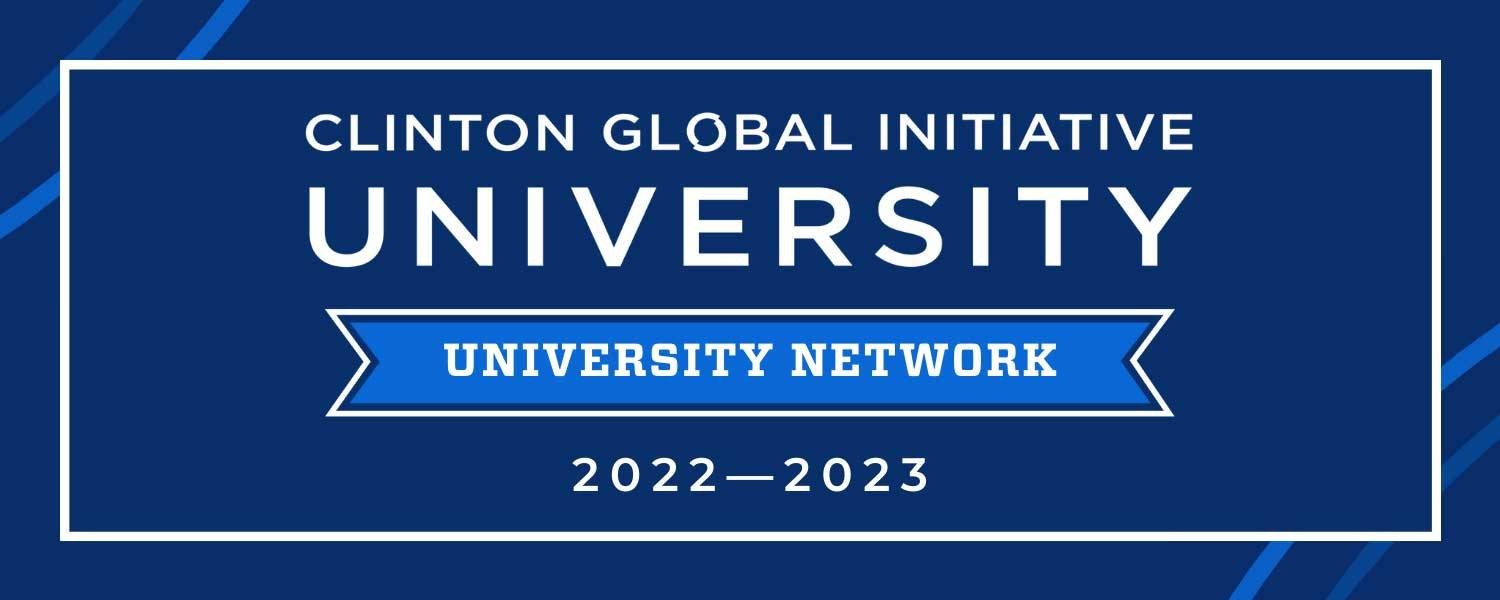Colgate University students Aayusha Dhungana ’26, MacDonald Chirara ’25, and Margo Williams ’23 have been selected by Clinton Global Initiative University (CGI-U) as Class of 2023 Fellows. They were chosen not only for their entrepreneurial and leadership qualities but also for their innovative project ideas: an Indigenous filmmaking app, a waste-powered electricity generator, and an interactive game focused on teaching youth about online speech.
The fellows will take part in a yearlong program that includes mentorship, a social impact curriculum, funding, and other events to further develop their skills as leaders and advance their individual projects. Additionally, fellows will have access to dedicated funds at Colgate for CGI-U participants as well as guidance from the Office of Entrepreneurship and Innovation.
“CGI-U provides remarkable mentoring and networking opportunities for students who are tackling pressing issues facing society and the world,” said Carolyn Strobel-Larsen, director of entrepreneurship and innovation. “While this year’s fellows are all working on projects that vary in nature and focus, all are aimed at positively impacting the lives of people across the country and world.”
Margo Williams ’23
An international relations major from Chicago, Ill., Williams applied to the program with an idea for an interactive, educational game called “Meet Reality’s Cousin, the Internet.” The game explains how various factors — such as content-moderation policies, unequal internet access, echo chambers, anonymity, and algorithmic bias — can make online and offline discourse look different.
“Too often, we see kids with their faces in their phones, fighting with people they’ve never met, on platforms that don’t hold anyone accountable for what they say,” said Williams. “I care deeply about the internet’s implications for society, and I really believe that my game format will resonate with kids and help to open the lines of communication.”
Williams plans to partner with internet researchers and middle school teachers to accurately depict online speech and design a curriculum that supports the game’s teachings. Once complete, Williams will then introduce the game to teachers at schools across Chicago.
“If we can teach kids how to navigate the internet, we will see them set their phones down and talk to one another about their challenges and concerns, and true progress can be achieved.”
MacDonald Chirara ’25
A biology and computer science major from Marondera, Zimbabwe, Chirara applied to the program with an ambitious proposal for a waste-powered electricity generator to provide renewable energy to rural communities in his home country.
“In Zimbabwe today, over 70% of rural households do not have access to electricity and instead use firewood as their main source of energy for cooking,” Chirara explains. To address the adverse effects that this has on the environment and on health, Chirara’s innovative biogas systems would allow households to convert their organic waste directly to cooking gas and electricity, sustainably and reliably.
Chirara hopes to use what he learns from launching his venture in Zimbabwe to determine how waste-powered electricity can be brought to even more rural communities in Sub-Saharan Africa — addressing Goal 7 of the United Nations Sustainable Development Goals: affordable and clean energy.
“Through the CGI-U program, I am eager to receive the unique opportunity to learn from and network with renewable energy experts, who can help me to further contribute to solving my community’s sustainable energy problems, which I have been working on since high school.”
Aayusha Dhungana ’26
A computer science major from Kathmandu, Nepal, Dhungana applied to the program based on her work with an idea for an Indigenous-centered app called Cultural Bridges. “The goal of the app is to amplify the voices of Indigenous communities through documentary film production and sharing,” Dhungana says. “By bringing together Indigenous filmmakers and diverse audiences, I believe this app can play a meaningful role in promoting understanding and respect for Indigenous cultures and traditions.”
The Cultural Bridges app will serve Indigenous filmmakers and their communities as well as individuals from all backgrounds who are interested in learning about and better understanding Indigenous cultures. Through creating such an Indigenous-centered platform, Dhungana hopes to share the Indigenous experience with a broader audience and expose more people to Indigenous perspectives on topics such as cultural heritage and environmental conservation.
In the year to come, Dhungana is eager to continue working on her app, connecting with like-minded and passionate individuals, and making a positive impact on her community and world. “Through my participation in CGI-U, I hope to not only grow personally and professionally but also make a lasting impact with the Cultural Bridges app,” Dhungana says.
